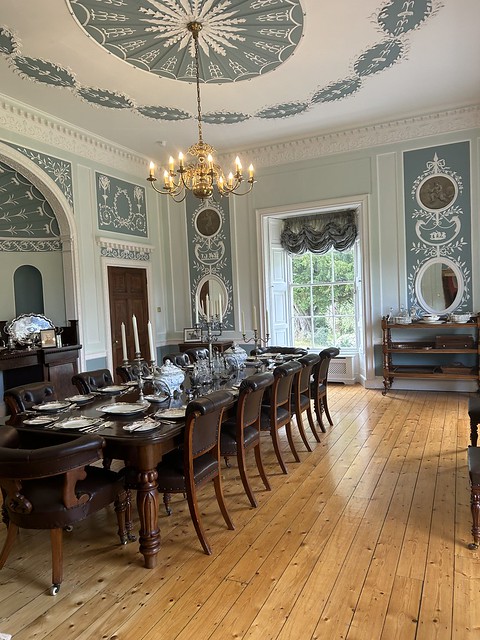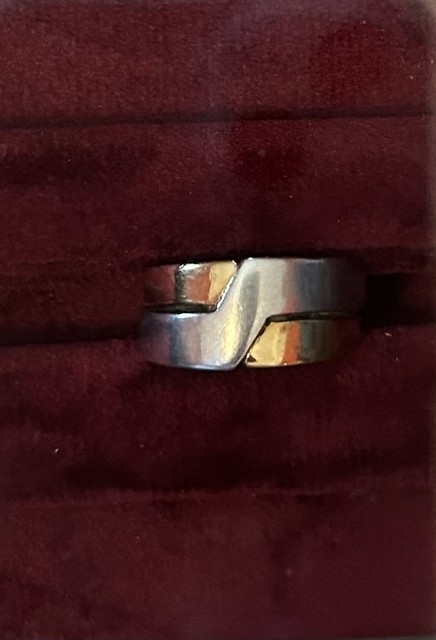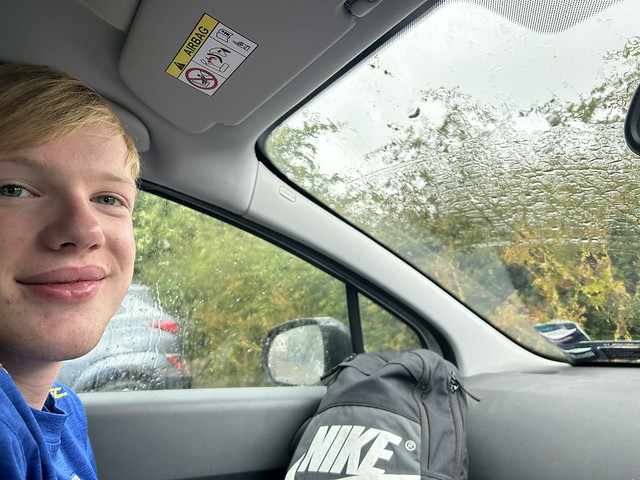More of it.
Serpentine by Philip Pullman
A bit slight. Witches, Lyra, a small companion volume to the “His Dark Materials” world.
Courtiers by Valentine Low
I did enjoy this. It’s about the civil service of the British monarchy except they’re not civil servants but courtiers. Interesting.
The Toxic Travel Guide by Frankie McNamara
This was a Christmas present from one of my children. A hit with the young people, I imagine and I have to hand it to the youthful author, he has covered every county in Ireland. It didn’t really make me laugh except once when referring to some less than wonderful part of Ireland, the author merely said, “No.”
The End and Other Beginnings by Veronica Roth
This is a terrible sci-fi short story collection. Cannot recommend.
Lockwood and Company The Screaming Staircase by Jonathan Stroud
Lockwood and Company The Whispering Skill by Jonathan Stroud
Lockwood and Company The Hollow Boy by Jonathan Stroud
Lockwood and Company The Creeping Shadow by Jonathan Stroud
Lockwood and Company The Hollow Grave by Jonathan Stroud
I watched the Lockwood and Company series on Netflix which was excellent and was intrigued so got out the books from the library. They are really good. Very well-written and engaging. I loved them. They are for children, obviously, but I do think that if this kind of thing (teenage ghost hunters) appeals to you, you could do a lot worse. It’s been a while since I’ve read something so well-written for this age group.
Ghosts of the Shadow Market by Cassandra Clare, Sarah Rees Brennan, Maureen Johnson, Kelly Link and Robin Wasserman
This is an appalling set of short stories set in the Shadowhunter universe (look at me, Shadowhunter universe). I do not know when I have read something as poorly written. Avoid.
Florida by Lauren Groff
Somebody recommended this author to me in the comments. These are exceptionally well-written short stories. Sad, intriguing, beautiful. But quite a hard read. Recommended but you would want to be in the whole of your health.
The Disappearance of Josef Mengele by Olivier Guez
This book was originally written in French but I read it in English. I don’t normally go for books in translation but I thought this was a pretty good rendition. The author has taken the known facts about Mengele’s life and supplemented them a bit with his imagination in places. I found it interesting though very grim in places. Interestingly, if the author is to be believed, by the 60s, Mossad were much more interested in the security of the Israeli state in the Middle East than tracking down former Nazis in South America.
Bournville by Jonathan Coe
A triumphant return to form as the reviewers say. I did not enjoy “Mr Wilder and Me” but I really enjoyed this which sees our author safely back in Birmingham in a story that covers interlinked family lives in the period from World War II right up to the pandemic. I loved it.
Love Novel by Ivana Sajko
This is translated from the original Croatian. Only 100 pages. Thank God. It’s about a tormented relationship. I was tormented. I did not enjoy it. More full stops needed.
Calypso by David Sedaris
David Sedaris is reliably hilarious. You will never go wrong with a book of his essays. Lots about family here.
The Home Scar by Kathleen MacMahon
This was a book club book. Our member who likes the hardest books said to me nervously, “It’s a bit literary, Anne, give it a chance.” This naturally made me approach it with considerable caution. Nevertheless, I liked it. It’s a good story about two siblings who go back to Connemara to retrace their steps on a memorable summer holiday with their mother. It’s really well done and beautifully written. I have, however, a prejudice which I find it difficult to get rid of. Dublin people tend to go to other parts of the country for their holidays – Kerry, Cork, Donegal, Connemara – buy second homes there and act like they own the place. I find this extremely irritating. I do not at all object to people from other parts of the country buying holiday homes in scenic locations (take, for example, everyone in Cork city who has a house in west Cork – not a problem), so this is just pure anti-Dublin prejudice. To be fair to the author, she does seem to be aware that not all of the locals are necessarily enthralled by the hordes of Dubliners descending on their towns. There is something there though, in the author’s own voice, that implies some kind of ownership, I can’t put my finger on what but I found it annoying. This is, however, a personal issue and overall, I recommend.
Romantic Comedy by Curtis Sittenfeld
What a delight of a book. I have read almost everything Curtis Sittenfeld has written and I believe she is a truly gifted writer but, if I have a criticism, it’s that her books can be a bit grim occasionally. I waited nervously for something awful to happen to these characters. Nothing awful happened and it was wonderful even though set largely in the pandemic. A lovely, lovely read.
Demon Copperhead by Barbara Kingsolver
This is a retelling of David Copperfield in a modern setting. It is set in the prescription drugs crisis in Appalachia. A really impressive achievement. Perhaps even better if you are at all familiar with David Copperfield which I am not (I’m getting it out of the library on foot of this). It definitely stands up on its own.
The English Understand Wool by Helen DeWitt
This is a weird, short book that I saw recommended in the paper. It’s about a girl who is taught to do everything right and what happens when her parents disappear. More fable than fiction, entertaining all the same.
The Best of Friends by Kamila Shamsie
“Home Fire” by this author was an absolute revelation to me. I thought it was amazing. This book about two girls who are school friends in Pakistan and end up living in Britain is not as good but quite good in its own way.
Pretty Bitches edited by Lizzie Skurnick
A series of essays about words which can be used to put women down. Depressing. I was astonished to discover the rules around declaring race in Virginia.
The Guru, the Bagman and the Sceptic by Seamus O’Mahony
I think I’ve read all of this man’s books. He’s a retired doctor from Cork and a good writer, I find. This, however, is not him at his best. He really dislikes Freudian psychoanalysis and, on the basis of this book, it’s very hard to blame him but the book reads like it could have done with a bit more prepping or editing and it’s quite confusing in places. Great footnotes though and some jaw dropping revelations.
Tornado of Life by Jay Baruch
A thoughtful ER consultant writes about doctoring, including through Covid. I thought I would enjoy this but I only found it alright. He was just too nice and sincere or something, it didn’t land for me.
The Making of Another Major Motion Picture Masterpiece by Tom Hanks
I enjoyed this. The author, obviously, needs no introduction. He knows a lot about film making and I liked his insights. The writing is grand and the story trots along at a good clip. I was sorry that the one truly awful character exited so early as I quite enjoyed him. I have to say that the film that it described sounds terrible.
Marzahn Mon Amour by Katja Oskamp
Another book in translation. Am I crazy? It was short and won the IMPAC prize. I was tempted. Very glad that I was. This is a series of lovely stories – a bit autobiographical – about a chiropodist who lives in East Berlin. Life affirming, as they say, and a lovely picture of a community. Also, you will have a new found respect for chiropodists when you’re finished.
Becky by Sarah May
This is clever. A re-telling of Vanity Fair where the titular heroine is a 90s tabloid journalist. Really well done, I would recommend. Though needs more Brussels.
English Pastoral by James Rebanks
This is the same man who wrote “A Shepherd’s Life” which I enjoyed very much. He is a wonderful writer. I feel in his writing the distance from the farm in England which is much less of a feature here. Although, I suppose, it will get that way. My cousin farms the land that my grandfather bought in the 1940s. It’s a big farm in a good part of the country for farming. Three generations have got a good living from that farm. My cousin is unmarried. I was surprised, talking to him recently, to hear that he has got out of diary farming and now only does beef. It’s a family farm and he has no wife and children of his own and it’s impossible to get workers for the farm. He was run ragged trying to keep it going as a dairy farm and when he lost half his herd to TB, he thought it might be time for a change. He has nephews and nieces (including three nephews who are growing up on a farm up the country, his sister having married a farmer also). “Do you think any of them would be interested in taking over the farm?” I asked. “God, no,” he said, “they’d run a mile.” It’s funny, when I was growing up, a family farm was a sinecure and now it almost seems like a millstone. In England they seem to be a bit ahead of us. It seems to be really, really hard to make a living from farming. The author lays the blame squarely on the shoulders of cheap food prices. I think he’s right but that is a very, very hard sell.
He has done amazing, interesting things on his own farm which help to promote biodiversity and that is fascinating but, as he says himself, it does make the farm less productive. He is not in the business of judging his neighbours for their farming practices and he does appreciate that people have to make a living. And, honestly, it seems that he isn’t. I hesitate to say this because he loves his farm and what he is doing seems completely right but he has to do other work to keep things going and the farm is close to a hobby. So I don’t see how these approaches can work for full time farmers. He makes a very compelling argument that cheap food is literally costing the earth but that’s a hard ship to turn. In an unlikely turn of events on foot of reading this book, I now find myself mildly curious to read the recommendations of our Citizens’ Assembly report on biodiversity loss which came out in April to very little interest from me. We’ll see whether I manage to sustain my interest levels.
One thing that I did find a bit surprising is that he made no mention of the EU. My friend’s mother is from Dublin and she married a man from the west of Ireland and moved to a small rural town in the 1960s for love and worked there as a GP. She says that everyone lived on credit and money only flowed on mart days when people had money to pay their bills. When Ireland joined the EU farmers had money for the first time from CAP payments and it revolutionised the town. Surely Brexit is having a negative effect on smaller farmers in England. I would have been really curious about his views on the impact of Brexit on his farm but he didn’t mention it in any way at all. I see from a very dull article in today’s paper that the CAP Strategic Plan 2023-2027 includes “two heavily funded environmental measures [which herald] a new era in addressing biodiversity issues.” We’ll see.
Anyhow, this is a thoughtful, interesting book. The author really hopes one of his four children will take over the farm but I don’t see how they will be able to afford to unless things change radically.















